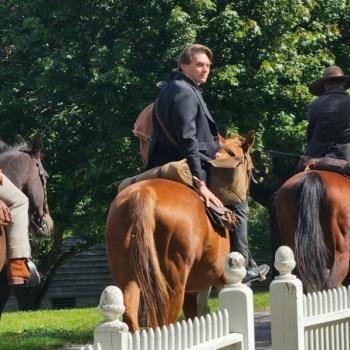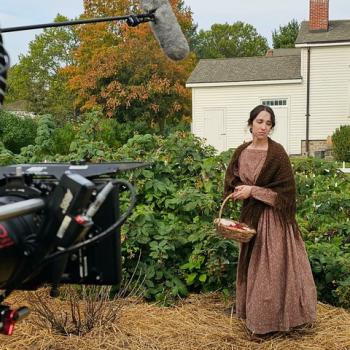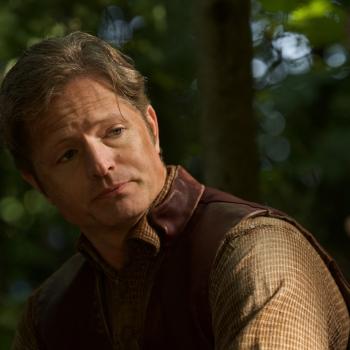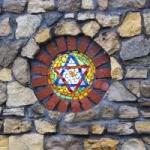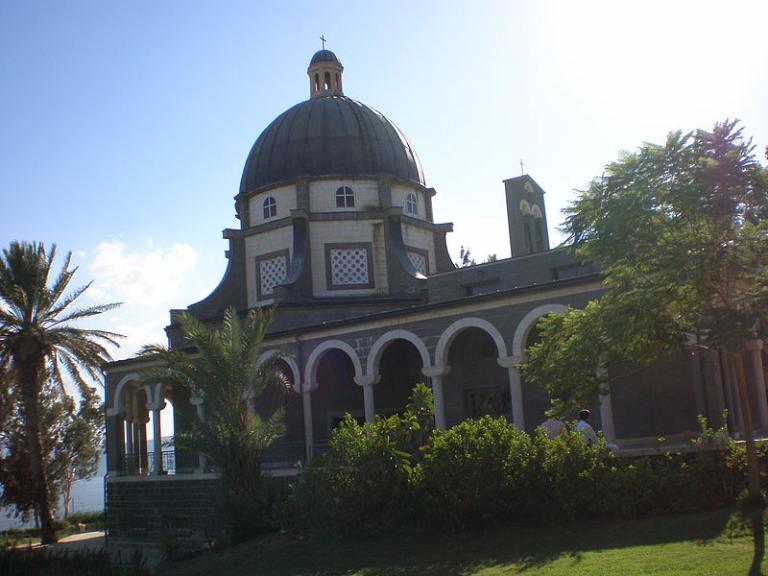
(Wikimedia Commons public domain image)
“Blessed are the peacemakers,” Jesus declares in Matthew 5:9,” for they shall be called the children of God.”
Plainly, the Lord desires peace, and he dislikes contentiousness. It is very significant, in that light, that the Restoration begins in a response to a time of contention. Listen, with that in mind, to the account given by the Prophet Joseph Smith:
Some time in the second year after our removal to Manchester, there was in the place where we lived an unusual excitement on the subject of religion. It commenced with the Methodists, but soon became general among all the sects in that region of country. Indeed, the whole district of country seemed affected by it, and great multitudes united themselves to the different religious parties, which created no small stir and division amongst the people, some crying, “Lo here!” and others, “Lo, there!” Some were contending for the Methodist faith, some for the Presbyterian, and some for the Baptist.
For, notwithstanding the great love which the converts to these different faiths expressed at the time of their conversion, and the great zeal manifested by the respective clergy, who were active in getting up and promoting this extraordinary scene of religious feeling, in order to have everybody converted, as they were pleased to call it, let them join what sect they pleased; yet when the converts began to file off, some to one party and some to another, it was seen that the seemingly good feelings of both the priests and the converts were more pretended than real; for a scene of great confusion and bad feeling ensued—priest contending against priest, and convert against convert; so that all their good feelings one for another, if they ever had any, were entirely lost in a strife of words and a contest about opinions.
I was at this time in my fifteenth year. My father’s family was proselyted to the Presbyterian faith, and four of them joined that church, namely, my mother, Lucy; my brothers Hyrum and Samuel Harrison; and my sister Sophronia.
During this time of great excitement my mind was called up to serious reflection and great uneasiness; but though my feelings were deep and often poignant, still I kept myself aloof from all these parties, though I attended their several meetings as often as occasion would permit. In process of time my mind became somewhat partial to the Methodist sect, and I felt some desire to be united with them; but so great were the confusion and strife among the different denominations, that it was impossible for a person young as I was, and so unacquainted with men and things, to come to any certain conclusion who was right and who was wrong.
My mind at times was greatly excited, the cry and tumult were so great and incessant. The Presbyterians were most decided against the Baptists and Methodists, and used all the powers of both reason and sophistry to prove their errors, or, at least, to make the people think they were in error. On the other hand, the Baptists and Methodists in their turn were equally zealous in endeavoring to establish their own tenets and disprove all others.
In the midst of this war of words and tumult of opinions, I often said to myself: What is to be done? Who of all these parties are right; or, are they all wrong together? If any one of them be right, which is it, and how shall I know it?
While I was laboring under the extreme difficulties caused by the contests of these parties of religionists, I was one day reading the Epistle of James, first chapter and fifth verse, which reads: If any of you lack wisdom, let him ask of God, that giveth to all men liberally, and upbraideth not; and it shall be given him.
Never did any passage of scripture come with more power to the heart of man than this did at this time to mine. It seemed to enter with great force into every feeling of my heart. I reflected on it again and again, knowing that if any person needed wisdom from God, I did; for how to act I did not know, and unless I could get more wisdom than I then had, I would never know; for the teachers of religion of the different sects understood the same passages of scripture so differently as to destroy all confidence in settling the question by an appeal to the Bible.
At length I came to the conclusion that I must either remain in darkness and confusion, or else I must do as James directs, that is, ask of God. I at length came to the determination to “ask of God,” concluding that if he gave wisdom to them that lacked wisdom, and would give liberally, and not upbraid, I might venture.
(Joseph Smith — History 1:5-13)
The Book of Mormon has much to say about contention. It condemns and rejects contentiousness. In Alma 1, for example, we are told that contention comes on account of pride — perhaps even when offenses are real and even when those who are suffering them are essentially innocent.
At least back when I was in elementary school and high school — I remember the photograph of President Grover Cleveland that graced my science room’s wall — basic physics classes liked to use the image of billiard balls to represent the interaction of particles and forces in our physical universe. (I have no idea how these things are represented in the age of quantum physics and wave functions.) In a perfectly frictionless environment, we were told, such motion would go on forever, transferred from a moving billiard ball to a stationary one, and then, that one now going into motion, from that moving billiard ball to yet another, and so on into eternity. That, alas, is also how offenses are too often passed on in this life. Abused children tend to abuse. Dysfunctional families produce dysfunctional families, generation after generation. What is needed is peacemakers — buffers on billiard tables — who will absorb loss and pain, injustice and hurt, but will not pass them on. If a single generation would do so — perhaps this is utopian — how much suffering would be eliminated! Perhaps this is what happened in 4 Nephi.
I love Brigham Young’s declaration, in a letter written on 15 June 1863 to various Indian chiefs, that “It is better to suffer wrong than to do wrong.”[i] That sentiment strongly reminds me of the repeated admonition of Plato’s Socrates, that it is better to suffer injustice than to do injustice. The former, he said, can injure the body. But the latter injures the soul.
[i] Brigham Young Letter Books, Church Archives.




